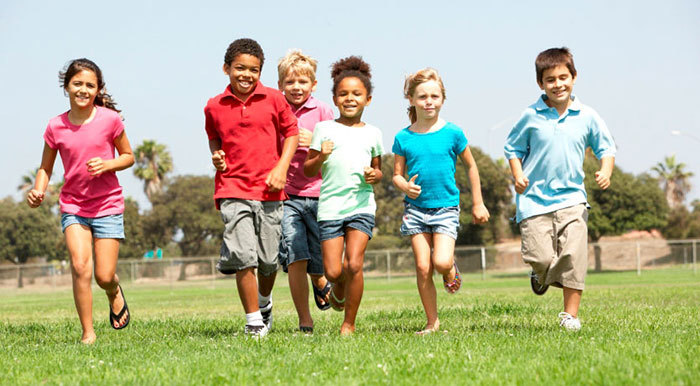Tipping the scales: SA's kids too fat, too sedentary
26 September 2014 | Story by Newsroom
South African children don't play enough; they eat too much fast food and they watch too much TV. And it shows: South Africa has slipped to a D in the 2014 Health Active Kids Report Card (HAKSA), down from a C- in 2010.
The latest HAKSA report reveals that two-thirds of adolescents eat fast food at least three times a week. They also spend an average of three hours in front of the TV during the week '“ and more on weekends. At best, only 50% of learners are active enough.
As a result, obesity rates are up from 2010: now 23% of girls and 10% of boys aged 10 to 14 are overweight or obese; while 27% of girls and 9% of boys aged 15 to 17 are overweight or obese.
Parents need to 'step up'
At the launch of the report in Cape Town on 19 September, co-author and head of UCT's Division of Exercise Science and Sports Medicine, Professor Vicki Lambert urged parents to "step up" and be part of the solution.
"Parents need to model the behaviour they wish to see in their children, be aware of what their kids are eating, support their sporting and physical activity, and set reasonable boundaries for TV viewing and screen time."
The scientific panel that contributed to the report includes academics and experts from six universities, as well as from the South African Medical Research Council, the Sport Science Institute, the Heart and Stroke Foundation, and Discovery Vitality.
Targeting children aged between six and 18, the report provides an evidence-based benchmark '“ from peer-reviewed published literature and advocacy tools − to promote healthy living among children and inform health policy. It follows similar report cards in 2007 and 2010.
How South Africa scores
In the latest report South African children scored a D for overall physical activity.
"Children need 60 minutes of moderate-to-vigorous activity every day, however, South African children average only 20 minutes of daily activity," said Lambert. "One vehicle [we can use to change that] is through policy, targeting the school timetable."
Transportation received a C-. Many children walk to school, which is laudable, but the flipside is that 20 to 50% of fatalities among children up to the age of 14 are pedestrian deaths.
Fruit and vegetable intake also scored a C-. Good news, however, is that school vegetable gardens are on the increase.
School tuck shops, fast food intake and the intake of sugar-sweetened beverages scored an F-.
"Despite limited resources and poor food security, children buy food at the tuck shop or from informal vendors. And they don't offer healthy choices."
As for diet, poverty and escalating food prices remain barriers to healthy eating, adds Lambert. Many of these factors precipitate "stunting", and the explosive combination of malnutrition and a predisposition to obesity.
There is some good news, however: fewer children are going to bed hungry and physical activity at schools is growing. South Africa, said Lambert, has produced some 'cutting edge' legislation (which is currently under consideration) limiting the marketing of unhealthy foods to children.
How South Africa compares
The report also shows how South Africa, home to 19 million children, compares to 14 other countries across nine health indicators.
On this list, we're in joint last place in sedentary behaviour; among the bottom rungs of countries surveyed for school health and lifestyle support; and in the middle for organised sports participation, overall activity rates, and community support.
In stark contrast, South Africa ranks near the top for government investment and strategies to promote healthy lifestyles in children.
"This suggests a policy implementation gap," added Lambert, "and may take some time to realise government investment in policy and programmes."
Clearly, there's work to be done.
"We want to create a vision for what we want to see in 2016 when the next report card is due," said Lambert.
She advocates "whole of school" support for healthy eating and physical activity; regular weighing of children, national tuck shop guidelines, and capacity building for teachers to promote physical activity and physical education.
Children also need more support from their parents, she added. Parent activism is rising in countries such as the UK and Australia where they're taking up issues (such as sweet counters at supermarket checkout points) in social media.
But the biggest future shock noted at the launch is that, unless something is done, for the first time in many generations, children born from 2000 could have a shorter life expectancy than their parents.
Story by Helen Swingler. Image courtesy of www.aquaterra.org.
 This work is licensed under a Creative Commons Attribution-NoDerivatives 4.0 International License.
This work is licensed under a Creative Commons Attribution-NoDerivatives 4.0 International License.
Please view the republishing articles page for more information.










